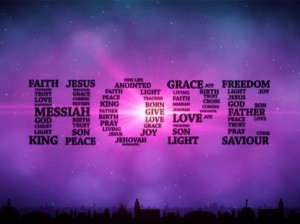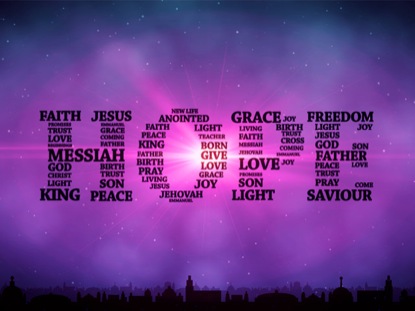 Welcome to the first Sunday of Advent and the beginning of the church year. A time when we reflect on our journey of faith and prepare for the birth of our Lord and Saviour, Jesus Christ. Advent is a season of preparation as we journey towards a season of joy, peace, love and light.
Welcome to the first Sunday of Advent and the beginning of the church year. A time when we reflect on our journey of faith and prepare for the birth of our Lord and Saviour, Jesus Christ. Advent is a season of preparation as we journey towards a season of joy, peace, love and light.
Text: Mark 13: 24-37
The Rooster Crows
Podcast: Play in new window | Download | Embed
Subscribe: RSS
Welcome to Advent. Welcome to the beginning of the year. Today we start a new, we welcome a change in time. Advent is a season of preparation and anticipation. An opportunity for us to reorient ourselves towards God’s time. To make adjustments as we prepare for Christmas.
It is interesting how the church starts its year one month before we do so on our calendars. We view time as such an intricate part of our daily lives. We start worship at 10:30, we try to do so on time. We wake up at a certain time, go to bed at another. Set alarms in order to arrive on time, try to avoid running late. Time governs us, put perhaps as we enter the Advent season we can make better sense of time.
Time allows us to prepare, to reflect and to prioritize. Too often our schedules run us, rather than assisting us. Perhaps this Advent we use this new beginning to do something new. Not that we should treat the season differently, but to live differently because of the understanding of the season and the time it represents.
Of course the year doesn’t begin on a happy note does it. Our passage from Mark this morning is anything but bright and cheery. It contains none of the good cheer we might normally associate with the New Year, but then Advent starts a season of contemplation. Still, to start with the words “But in those days, after that suffering…” It’s rather bleak.
However, it turns quickly doesn’t it with images of the Son of Man coming with great power and glory. Of his angels being sent out from the ends of the earth to the ends of heaven. I imagine that would take my breath away.
Our passage ends with a warning. A warning to be watchful, for we do not know the day or the hour. Keep alert we are told. For we do not know the hour, it could be evening, midnight, before dawn or at sunrise. It sounds like Jesus doesn’t want us to sleep. The interesting thing about this passage is the way it is translated in the Good New Bible. It’s those words ‘before dawn’. You see in most other translations those words don’t appear. Any guesses as to what might appear?
The NRSV translates those words as ‘cockcrow’ and the NIV translates them as ‘when the rooster crows.’ Nothing about before dawn, though I do suppose that is when a rooster crows. The omission is important for us to note and it is why if you are engaged in serious bible study you need to use more than one translation. Understanding the nuance of translation is important, why does one translation use one word and another translation a different one? What does the original Greek say, we need to try to get at the heart of that.
I will share with you that the word used here only shows up once in the entire bible, adding to the difficulty in translating. However, most commentators and translations agree that it is of a rooster crowing. Now you might be thinking, that’s all well and good but it makes no sense to say evening, midnight, when the rooster crows and sunrise. One of these things is not like the other.
If I asked which didn’t belong, you’d pick the rooster. So perhaps the Good News has the right idea.
However, I want you to think about the rooster.
I want you to think about another story in the gospels which involves a rooster.
Have you got it? I’ll give you a clue it occurs in the next chapter of Mark. It is also a story which all four gospels share.
The rooster only shows up in our reading today, assuming you aren’t reading the Good News Translation, and in that famous story about Peter, his three denials and a rooster crowing two times.
Keep watch, you do not know when he is coming back, it could be evening, or at midnight, when the rooster crows or at dawn.
I believe there is deep significance to the mention of the rooster. In Mark’s gospel, the story with Peter denying Jesus happens in the next chapter. It is no accident that Mark has made this comment at this point in his gospel. It serves as a warning and in the next chapter with Peter’s denial we see consequences of a warning which was not heeded. After he realizes what he has done, Peter breaks down and weeps.
Commentator Scott Hoezee writes, Peter did not live to see the return of Jesus. An event each of us anticipates, but Peter’s apocalypse happened at that moment when the rooster crowed. That was Peter’s encounter with the living God.
Hoezee goes on to relate a story from Fred Craddock. A story about something that happened while he was driving by himself cross-country. Craddock had stopped at a small diner somewhere in the South to refresh himself with an early breakfast and some coffee. He had been driving through the night and now it was getting close to dawn. So, before he got too sleepy, he stopped for a while.
As he waited for his breakfast order to come, Craddock spied a black man who had just come in and had sat down on a stool up by the lunch counter. The diner’s manager then began to treat the black man with a contempt that was clearly borne of deep-seated racism. The manager was rude, insulting, demeaning toward his black guest. As he sat in his booth a little ways away from the counter, Craddock wrestled with saying something to chide this manager for his shameful, racist conduct. Eventually the black man quickly slurped down some coffee and then fled the diner. Craddock meanwhile remained silent. “I didn’t say anything,” he confessed. “I quietly paid my bill, left the diner, and headed back to my car. But as I walked through the parking lot, somewhere in the distance, I heard a rooster crow.”
We might equate this story to that well known expression, All that is required to allow evil to flourish is for good people to remain silent. It is why I am so glad we have Amnesty International here with us this morning, so that we have the opportunity to raise your voices.
The Christ of God did not arrive in this world long ago to help people be a little nicer, nor did he come to encourage a few weeks’ worth of charitable giving to the United Way or the local soup kitchen, or any other such short-term, local goal. No, the Christ of God came to make straight every crooked way, to right every wrong, to upend every injustice, and to reconcile all things—ALL things—to himself (reference).
We have all heard a rooster crow. Today on the first Sunday of Advent, at the beginning of a new year we can ponder when the kingdom of God has been at hand and then we stumbled. Perhaps we can ponder on how we can right our steps. Amen.
